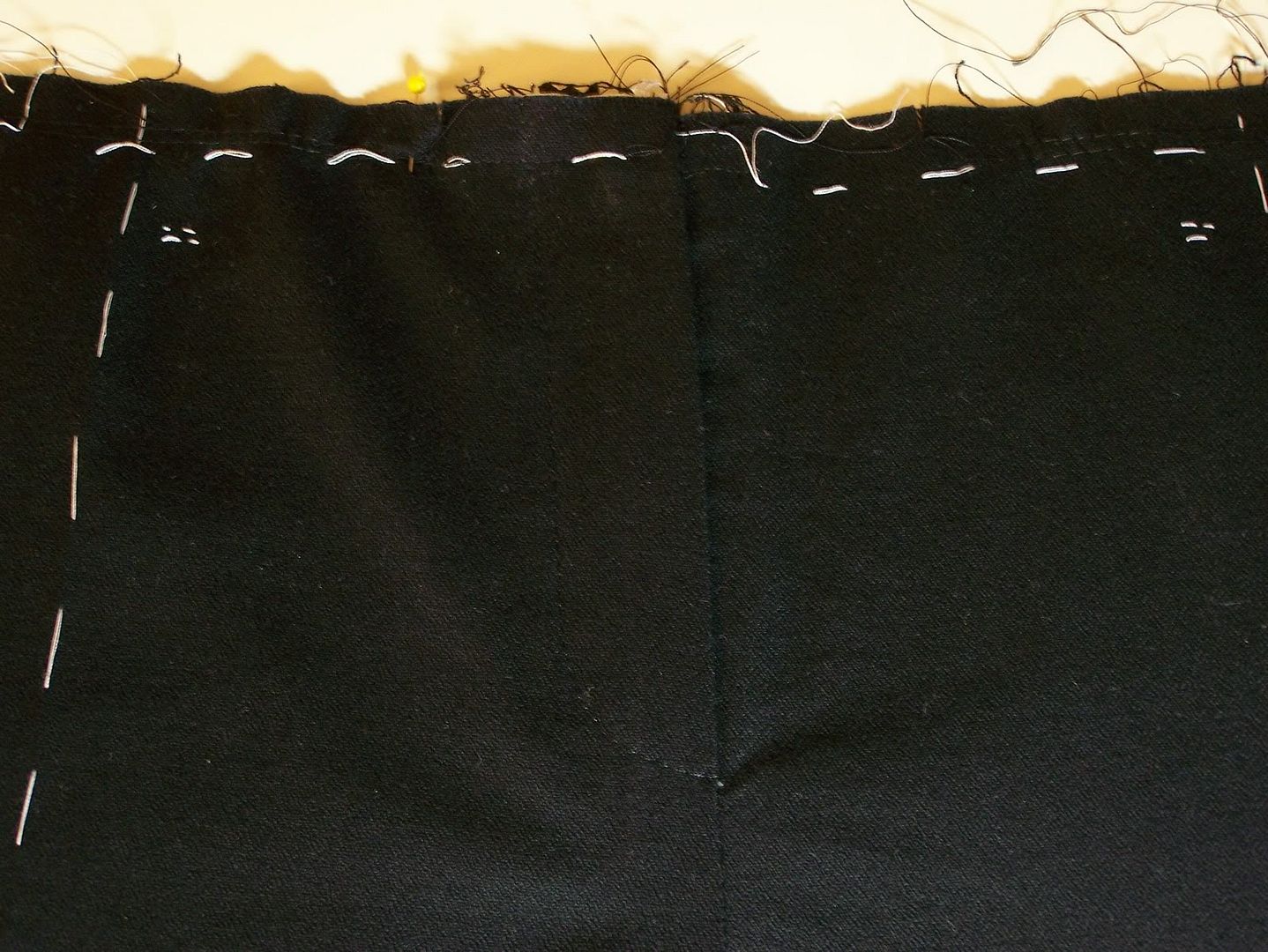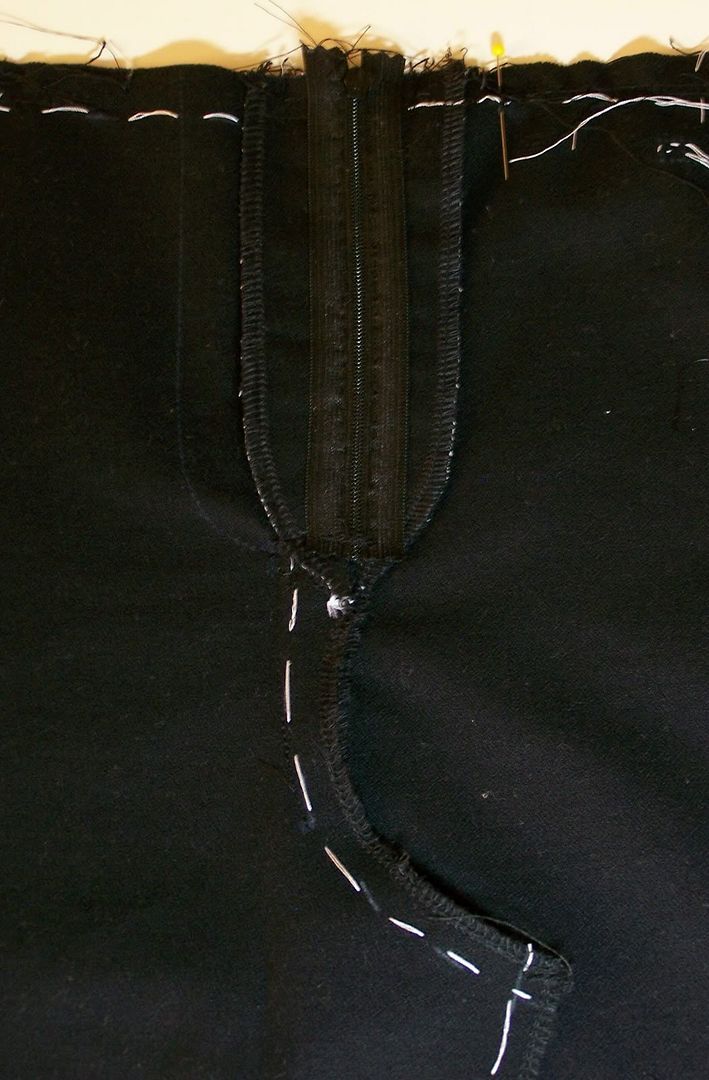 On couture pants, the zipper is done by hand. At first, I feared this would be quite daunting because aren't all couture techniques suppose to be difficult? I was happily surprised. This is the easiest zipper application I've ever done! Sew-in interfacing is hand basted on both sides of the fly extension. I used 1/4" wide twill tape to stay the foldlines.
On couture pants, the zipper is done by hand. At first, I feared this would be quite daunting because aren't all couture techniques suppose to be difficult? I was happily surprised. This is the easiest zipper application I've ever done! Sew-in interfacing is hand basted on both sides of the fly extension. I used 1/4" wide twill tape to stay the foldlines.I finished the edges with my serger instead of using hand overcasting. Once the front sections are machine stitched together below the fly extensions, I turned in the extensions on the foldlines, basted at the waist edge and pressed.
 The difference between this method and the ever-so popular Sandra Betzina method is this: When using the couture method, you topstitch the fly BEFORE you put the zipper in. And when you think about it, it makes so much sense! I always flub on my topstitching when the needle has to go across the zipper.
The difference between this method and the ever-so popular Sandra Betzina method is this: When using the couture method, you topstitch the fly BEFORE you put the zipper in. And when you think about it, it makes so much sense! I always flub on my topstitching when the needle has to go across the zipper.The zipper is sewn in by first basting it in place. Now, the part that scared me to death was handstitching it in. I'll admit, I didn't trust my handstitching ability in securing this zipper! The method that is recommended is called stabstitching. Stabstitching is used to sew through thick layers by inserting the needle into the outside and pulling it out on the inside. Then insert it from the inside and pull it to the outside. This stitch is very secure. The stabstitching was only done on the underlap (the side that is not seen by the public). For the right side, the zipper is based into place and secured with running stitches. In my opinion, this method produces a neater looking zipper and it also gives you more control. I'll be using this method for all of my fly fronts from now on.

No comments:
Post a Comment